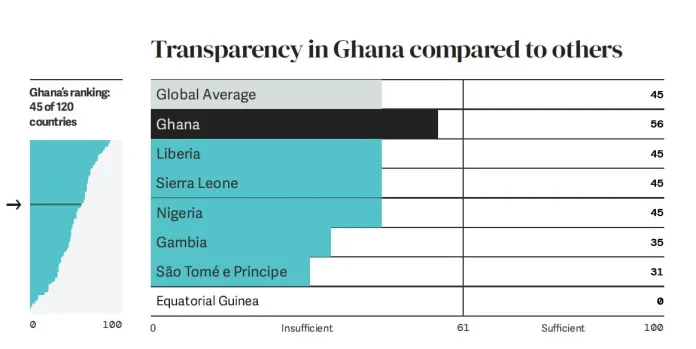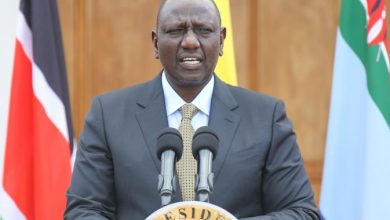
The country improved marginally on budget transparency – scoring 56 out of 100 – indicating public access to information on how the central government raises and spends public resources, the Open Budget Survey (OBS) has revealed.
This is an increase from 54 recorded in 2019. The Open Budget Survey (OBS) by the International Budget Partnership assesses the online availability, timeliness, and comprehensiveness of eight key budget documents using 109 equally weighted indicators and scores each country on a scale of 0 to 100.
A transparency score of 61 or above indicates a country is likely publishing enough material to support informed public debate on the budget.
“Government budget decisions – what taxes to levy, what services to provide, and how much debt to take on – have important consequences for all people in society. When governments provide information and meaningful channels for the public to engage in these decisions, we can better ensure public money is spent on public interests,” Godson Aloryito, Budget Credibility Programme Officer at International Budget Partnership.
Mr. Aloryito mentioned that there seems not to be any feedback mechanism where citizens can provide feedback during the implementation stage of the budget process.
“The ministry has a robust system that solicits inputs during budget formulation, but when it comes to the implementation, they don’t seem to have a feedback mechanism where citizens can provide feedback. So, the OBS is calling on the ministry to come up with avenues,” the Programme Officer highlighted.
To improve budget transparency, the survey recommended that Ghana should prioritise including in the Executive’s Budget Proposal data on the financial position of the government and data on the macroeconomic forecast.
This is expected to include published information related to financial and non-financial assets, as well as estimates of the impact of different macroeconomic assumptions on the budget.
Further to this, the country must improve the comprehensiveness of the citizens’ budget and pre-budget statement.
On the parameter of public participation, the survey assesses the formal opportunities offered to the public for meaningful participation in the different stages of the budget process.
Ghana scored a public participation score of 20 out of 100.
This examines the practices of the central government’s executive, the legislature, and the supreme audit institution (SAI) using 18 equally weighted indicators aligned with the Global Initiative for Fiscal Transparency’s Principles of Public Participation in Fiscal Policies, and scores each country on a scale from 0 to 100.
“Although there are some issues with that, particularly on participation, we saw that though presentation improved, where citizens are able to engage in a budget, it improved from 15 in 2019 to 20 in 2021, but the gap there has to do with participation during implementation.
“Broadly, we are looking at three aspects of budget transparency, whether the public has access to budget information in a timely manner, and whether the public has spaces to engage during the budget formulation stage, approval, implementation, and then the oversight stages,” Mr. Aloryito said.
-b&ftonline.com-




